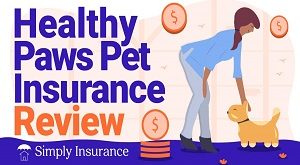Introduction:
The world of insurance is one that elicits various emotions and opinions. While many people understand the importance of insurance in mitigating financial risks, a pervasive skepticism often lingers, leading some to question, “Is insurance a scam?” In this article, we’ll delve into the complexities of the insurance industry, examining common misconceptions, the purpose of insurance, and the mechanisms that underpin its functioning.
Understanding the Purpose of Insurance:
At its core, insurance is a risk management tool designed to protect individuals, businesses, and assets from financial losses arising out of unforeseen events. These events could include accidents, illnesses, natural disasters, or other circumstances that can result in financial hardship. Insurance provides a safety net, allowing individuals to share the risks collectively and avoid bearing the full financial burden of a loss on their own.
How Insurance Works:
Insurance operates on the principle of risk pooling. Policyholders pay premiums into a collective pool, and when a covered event occurs, the funds are used to compensate the affected policyholder. The idea is to distribute the financial impact of a loss among a large group of individuals, making it more manageable for everyone involved.
Insurers use actuarial science to assess risks and determine the appropriate premiums to charge. Actuaries analyze historical data, statistical models, and risk factors to estimate the likelihood and potential cost of various events. This meticulous analysis helps insurers set premiums that are both competitive and reflective of the risks involved.
Common Types of Insurance:
There are various types of insurance designed to address specific needs and risks. Some common types include:
- Health Insurance: Provides coverage for medical expenses, helping individuals manage the costs associated with healthcare.
- Auto Insurance: Protects against financial losses resulting from car accidents, theft, or other damages to the insured vehicle.
- Life Insurance: Offers financial protection to beneficiaries in the event of the policyholder’s death, providing funds for funeral expenses, debt repayment, or income replacement.
- Homeowners/Renters Insurance: Covers damages to the home or personal property caused by events such as fire, theft, or natural disasters.
- Business Insurance: Provides coverage for businesses against various risks, including property damage, liability claims, and business interruption.
Debunking Common Misconceptions:
Despite its fundamental role in risk management, insurance has been the subject of skepticism and misconceptions. Let’s address some common misconceptions and shed light on the reality of the insurance industry:
- Insurance Companies Profit from Denying Claims: While denials do occur, the idea that insurance companies profit solely from denying claims is misleading. Insurers have a vested interest in maintaining customer trust and satisfaction. Denials are typically based on policy terms, exclusions, or insufficient documentation, rather than an inherent desire to avoid payouts.
- Insurance is a Waste of Money if You Don’t Use It: Insurance is fundamentally about risk mitigation, and the value extends beyond the immediate need for a claim. The peace of mind that comes with knowing you are protected from potential financial devastation is a significant benefit of insurance.
- Insurance Premiums are Unreasonably High: Premiums are calculated based on risk factors and actuarial assessments. While costs may vary, insurance premiums are generally commensurate with the level of risk associated with a particular policy.
- Insurance Companies Are Only Interested in Profit: While insurance companies are profit-driven entities, their success is also tied to customer satisfaction and retention. Long-term success depends on maintaining a balance between profitability and fair treatment of policyholders.
- Insurance is a Scam Because Payouts Are Rare: The rarity of payouts is not indicative of a scam but rather a testament to the unpredictability of covered events. Insurance is designed to provide financial protection when needed, but not every policyholder will experience a covered loss.
Transparency and Regulation in the Insurance Industry:
To address concerns about transparency and fair practices, the insurance industry is subject to extensive regulation. Regulatory bodies exist at both the state and federal levels to oversee insurance practices, ensuring compliance with laws and ethical standards. Insurance companies are typically required to provide clear policy terms, disclose exclusions, and adhere to fair claims-handling procedures.
In addition to regulatory oversight, industry associations and consumer advocacy groups play a role in promoting transparency and accountability. Policyholders have avenues for recourse if they believe they have been treated unfairly or if there are disputes regarding claims.
Making Informed Decisions as a Consumer:
To maximize the benefits of insurance and alleviate concerns about scams, consumers can take proactive steps:
- Educate Yourself: Understand the basics of insurance, including the types of coverage available, policy terms, and the claims process. Knowledgeable consumers are better equipped to make informed decisions.
- Shop Around: Compare offerings from different insurance providers. Consider factors such as coverage limits, deductibles, and customer reviews. Shopping around allows you to find policies that best align with your needs and budget.
- Read and Understand Policies: Thoroughly review policy documents before purchasing insurance. Understand coverage limits, exclusions, and any conditions that may affect claims.
- Ask Questions: If there are aspects of a policy that are unclear, don’t hesitate to ask questions. Insurance agents are there to assist and provide clarification.
- Maintain Communication: Keep your insurance provider informed of any changes in your circumstances. Regular communication ensures that your coverage remains up-to-date and aligned with your needs.
Conclusion:
In conclusion, the notion that insurance is a scam is a misconception rooted in misunderstandings and, in some cases, isolated incidents of malpractice. While the insurance industry is not without its challenges, it serves a crucial role in society by providing financial protection and risk management. By educating oneself, understanding policy terms, and making informed decisions, consumers can navigate the world of insurance with confidence, ensuring that they reap the benefits of this essential financial tool. Rather than dismissing insurance as a scam, it is more productive to engage with the industry to address concerns and enhance transparency, promoting a mutually beneficial relationship between insurers and policyholders.





